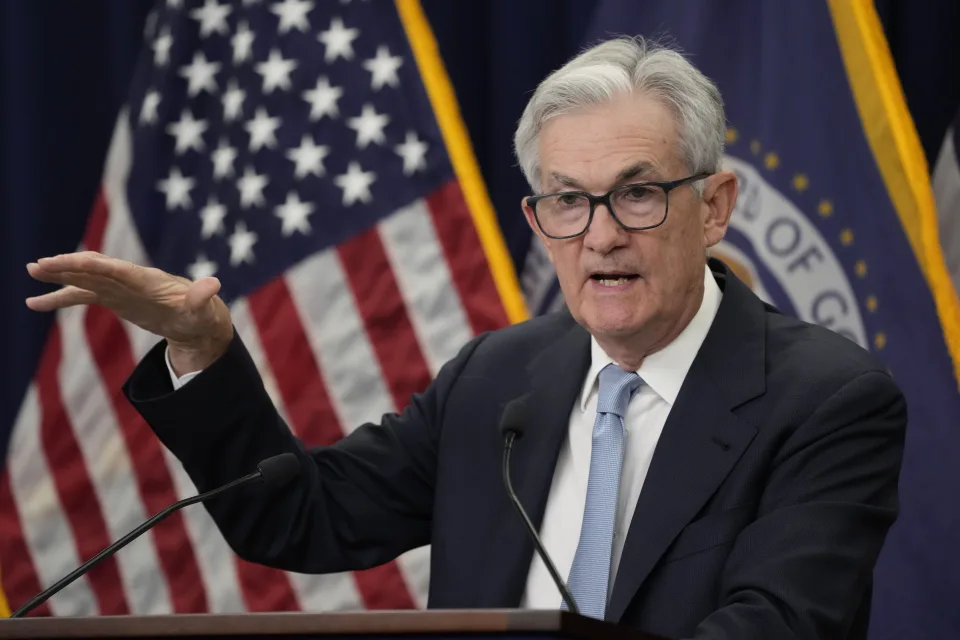U.S. stocks tumbled on Tuesday as the fallout from First Republic Bank’s (FRC) failure continued to hit bank stocks and the Federal Reserve began its two-day meeting.
The S&P 500 (^GSPC) closed 1.16% lower, while the Dow Jones Industrial Average (^DJI) tumbled more than 300 points, or 1.08%. The technology-heavy Nasdaq Composite (^IXIC) dropped 1.08% at the close.
Government bonds slumped as fresh data from the Labor Department showed that the labor market continues to cool. The yield on the 10-year note was down to 3.4%, and the two-year note yield fell to 3.9%.
Two days before the Federal Reserve’s decision, regulators took possession of First Republic and sold the bulk of its assets to JPMorgan Chase (JPM), resulting in the third failure of an American bank since the collapse of Silicon Valley Bank and Signature Bank in March.
It’s been a wild ride for First Republic, which teetered on the brink of failure for nearly two months. The regional lender last week revealed that deposit outflows totaled over $70 billion in the first quarter.
Investors are worried the worst isn’t over for regional banks. The S&P 500 regional banking index (KRE) was down over 6%, hitting a new 52-week low, according to Bespoke Investment Group. Shares of PacWest Bancorp (PACW) sank over 27%, while Western Alliance (WAL) plunged as much as 15%. The financial industry weighed down the S&P 500 by more than 2%.
Investors are also closely waiting for the outcome of the Fed meeting, expected to be announced Wednesday. The Fed is widely expected to raise rates by a quarter point. Investors’ main focus will be whether Fed Chair Jerome Powell gives any hints of what’s to come at the central bank’s June meeting.
Some market participants are placing bets that the central bank will maintain its hawkish tone and could signal a June hike. Others, like Morgan Stanley’s equity strategist Mike Wilson, expect the Fed to pause interest rate hikes and also refrain from rate cuts through the end of the year, resulting in the federal funds rate remaining at a steady level of just over 5% for the foreseeable future.
“Should the message delivered at this meeting lead to a re-pricing of bond market expectations for rate cuts in the second half of ’23 (i.e., rate cuts get priced out, leading to an implied path that’s more in line with our economists’ view for a pause), that could ultimately be a negative surprise for equities,” Wilson said in a Monday note.
Wall Street will also turn its attention to April’s jobs report on Friday. On Tuesday, fresh economic data from the Bureau of Labor Statistics showed that job openings dropped to 9.6 million in March, below economists call for 9.7 million. The quit rate ticked down to 2.5% and layoffs increased to 1.8 million, the Labor Department’s Job Openings and Labor Turnover Survey, or JOLTS, showed Tuesday.
“The signs of labor market softness won’t be a game-changer for tomorrow’s FOMC meeting, though they do suggest that the cumulative amount of policy tightening is starting to have its desired effect on businesses’ labor demand,” JPMorgan economist Michael Feroli said in a research note.
Meanwhile, in Washington, Treasury Secretary Janet Yellen said the government could run out of funding to pay its bills by the beginning of June if Congress fails to raise the debt limit — comments that also weighed on stocks.
Another headliner this week on the earnings front will be Apple’s quarterly results on deck for Thursday.
Here are the trending tickers on Yahoo Finance:
- Icahn Enterprises L.P. (IEP): Hindenburg Research is questioning Icahn Enterprises’ policies on asset valuations and its dividend policy.
- Chegg, Inc. (CHGG): The company warned that the usage of the viral chatbot ChatGPT was pressuring customer growth.
- Morgan Stanley (MS): Senior managers are discussing cutting roughly 3,000 jobs at the bank by the end of June, Bloomberg reported Monday, citing people familiar with the matter.
- Pfizer Inc. (PFE): The drugmaker beat Wall Street expectations in the first quarter following weaker sales for its COVID vaccine.
- Uber Technologies, Inc. (UBER): The company’s quarterly results beat analysts’ estimates, showing that consumers continue to spend more on rides and food takeout.
- BP p.l.c. (BP): The oil giant’s quarterly profits came in lower than a year ago.
- Marriott International, Inc. (MAR): The hotel chain reported earnings that showed sales jumped from last year while increasing its guidance as travel demand rebounds.

